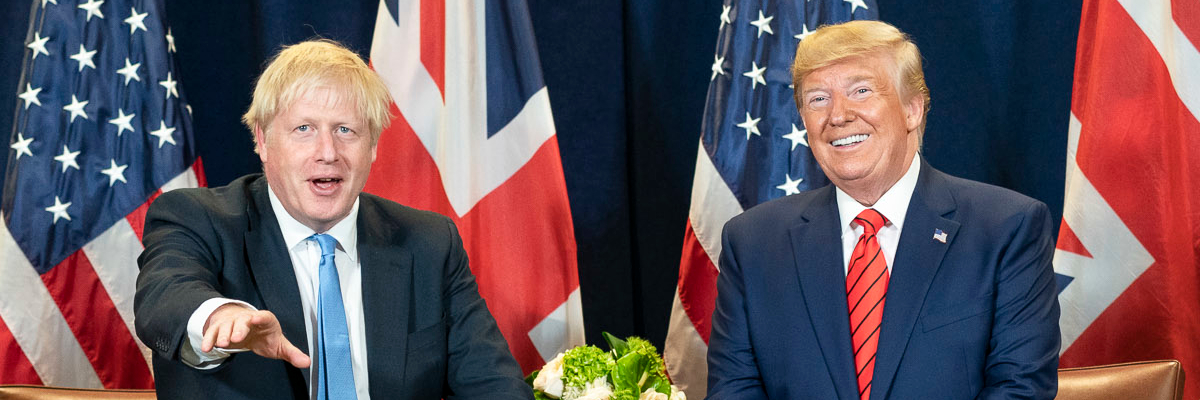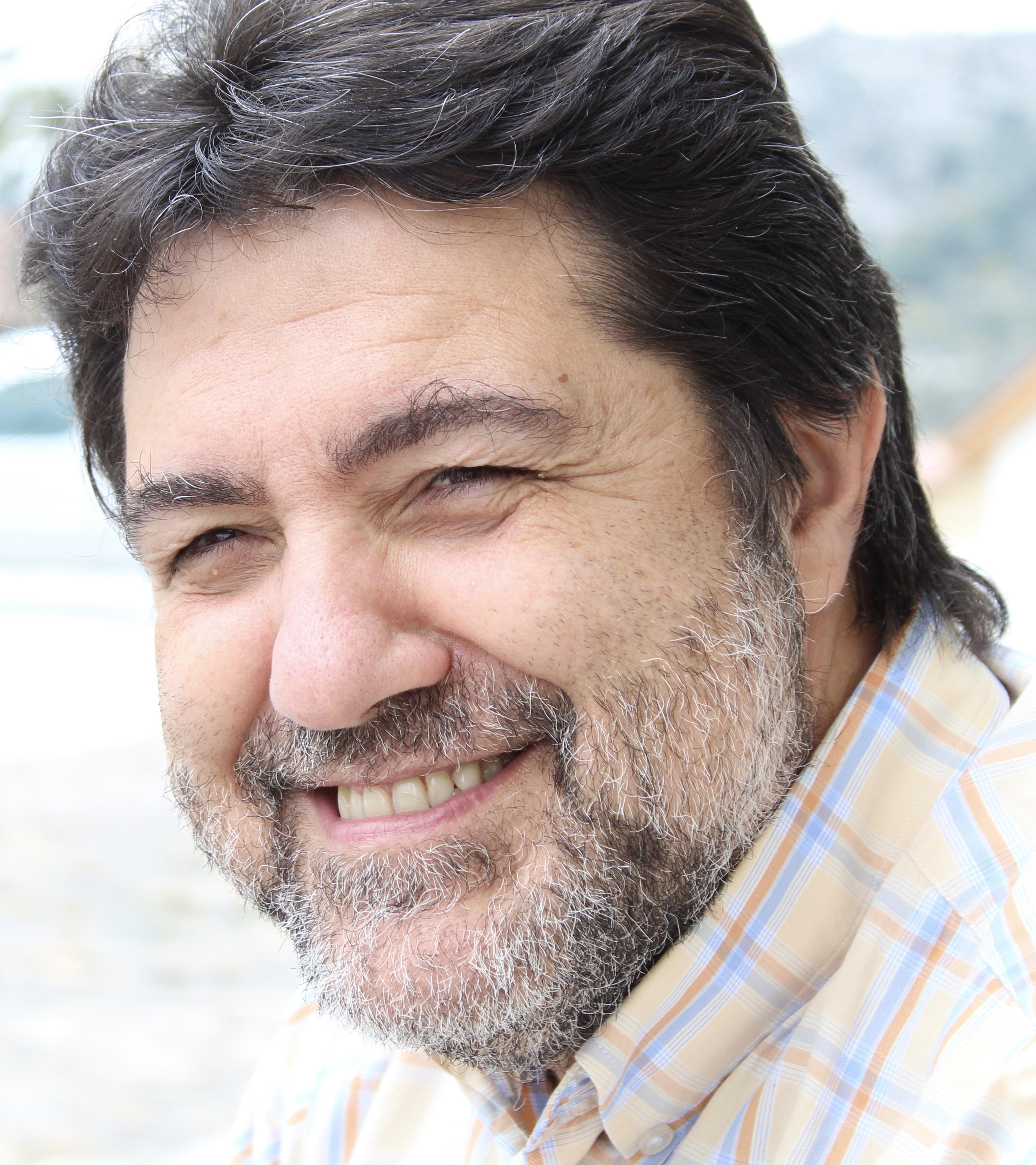Diplomacy
Berlusconi, Trump and Johnson: three populist fates

Image Source : Stutterstock
Subscribe to our weekly newsletters for free
If you want to subscribe to World & New World Newsletter, please enter
your e-mail
Diplomacy

Image Source : Stutterstock
First Published in: Jun.07,2023
Jul.25, 2023
Silvio Berlusconi, Donald Trump, and Boris Johnson have recently been in the spotlight. Berlusconi's passing has drawn attention due to his long and controversial personal and political life. Trump is facing a new and potentially perilous legal prosecution. Johnson, on the other hand, has been excluded from a return to the forefront of politics by a committee within his own party, at least in the near future.
All three will be remembered as prominent figures of political populism, a conservative current that primarily but not exclusively offered an alternative to the weakened traditional conservative right. They also presented a challenge, to a lesser extent, to centrist liberalism and social democracy, both of which were undergoing an identity crisis.
While there are differences among them, all three were "mass seducers," capable of attracting millions of voters without necessitating trust in their words or actions, regardless of the credibility of their policy proposals. Berlusconi and Trump had scandal-ridden private lives characterized by exaggerated, even exhibitionist, philandering and machismo. Johnson has been somewhat more discreet, but he can hardly be considered a champion of the decency demanded by his conservative base. His actions, even during the pandemic, have led to his current ostracism.
Johnson has been the most articulate, educated, and socially privileged among the three, coming from an elite background and rising within the ranks of the Conservative Party. In contrast, Trump and Berlusconi emerged from a state of political obscurity. Trump later colonized the Republican Party, transforming it and, some argue, leading it towards destruction. Berlusconi, on the other hand, disregarded the established post-war party, Christian Democracy, which he deemed corrupt, ineffective, and obsolete. He built something new with highly populist traits, exemplified by the rallying cry of Forza Italia!, appealing to football fanatics. While it maintained its brand for 30 years, its decline appears to have reached its lowest point, as it is now the weakest force within the right-wing coalition, trailing behind Fratelli and Lega with barely 20% of the MPs among the three factions.
Each of them has been a product of their respective times, like any political leader. However, all three have also been game-changers, agents of change during their era. Trump upended the political system in the United States, altering the balance within the two-party system, reshaping the dynamics of the conservative electorate, and simultaneously exposing the flaws within American democracy.
Berlusconi dismantled the system of the First Republic, which revolved around a binary dynamic between the dominant Christian Democracy (DC) in government and the Italian Communist Party (PCI) as the permanent opposition. A minor game consisted of various companion parties (socialists, social democrats, liberals, and republicans) aligning with the dominant party. Il Cavaliere disrupted the delicate balance of this pentaparty system of the Center-Right with a new political culture or rather, the absence of any political culture at all. He applied show business principles to public administration, treating his party as a personal company, driven by the goal of success.
Trump did not go as far as Berlusconi. He lacked the talent, patience, and management team that the Milanese businessman possessed. Both individuals had opaque, suspicious, and potentially fraudulent businesses, but to varying degrees and extents. Additionally, they operated within different legal and political environments, albeit under the umbrella of capitalism. They shared the ability, with the help of pseudo-informational media (owned by Berlusconi in the Italian case and manipulated in Trump's New Yorker case), to obstruct, influence, delay, neutralize, or render judicial investigations ineffective in the medium and long term. Both were or have been elusive figures in the political circus they orchestrated around themselves.
Johnson, on the other hand, reshaped the political landscape but relied on an existing base. His intention was not so much to transform the rules as it was to exploit them to his advantage. Even Brexit, which many consider his significant achievement, was not originally his project. He appropriated it, infused it with his personal touch, and made it a pivotal factor in the UK's most consequential strategic shift in 50 years.
Berlusconi has now become a part of history, or is on the path to doing so. His state funeral has been deemed inappropriate, and the obituaries, as is often the case, tend to either overly praise or justify his fraudulent political career. He was never a statesman but rather a swindler who knew how to exploit the weariness, fatigue, disbelief, and cynicism of an electorate that was at its wit's end. Few believe that Forza Italia will survive the death of its founder.
Johnson finds himself once again in a state of uncertainty (not for the first time), facing reprimand from his own party members and being disregarded by the Prime Minister, to whom he once granted the influential position of Chancellor of the Exchequer, overseeing the Kingdom's finances. Such rough-and-tumble politics is not uncommon within the Tory world. Even someone of greater stature, like Margaret Thatcher, fell victim to similar episodes of apparent betrayal, disloyalty, and abandonment.
Trump is inching closer to a return to the forefront, despite facing intense legal scrutiny in various cases related to fraud, tax evasion, mishandling of sensitive public documents, obstruction of justice, political conspiracy, and more. The outcomes of these ongoing court cases are likely to turn into a spectacle with evident electoral implications, provided he can maintain control over them, which is no small feat. The numerous rivals who have emerged in recent weeks to challenge him for the Republican nomination do not seem to possess sufficient substance. Trump's greatest adversary is himself. However, his greatest advantage is also himself, as he possesses the ability to connect with a sizable segment of the population that remains unmoved by the hollow discourse of the political elite on democracy and values.
These three great tenors of populism have served as inspiration for lesser local figures, with different backgrounds and similar political styles. It is worth clarifying that not all those who deserve to be labelled populist in the media are similar or assimilable. Confusion is frequent.
Within the right-wing political landscape in Europe, several key themes prevail among these figures:
- national primacy.
- a rather outdated form of patriotism.
- almost absolute rejection of immigration.
- a very traditional conception of the family
- demagogic interventions in the liberal economy.
However, they are divided by a fundamental dispute: relations with Russia. Two clear groups emerge:
1. The Identitarians, who have maintained a cooperative and non-confrontational relationship with Putin. This group within the European Parliament includes figures such as Marine Le Pen in France, Lega Salvini in Italy, AfD in Germany, Flemish Vlaams Belang in Belgium, and xenophobic factions in Finland and Denmark, among others. Trump could also be placed within this group, although his ideological formulations are not well-defined.
2. Conservative nationalists, staunchly anti-Russian. This is particularly true for the ultra-nationalists in former communist countries, with Poland's Law and Justice (PiS) party at the forefront (excluding Hungary's Orbán, who maintains a cordial relationship with Putin). This group includes NVA in Belgium, the far-right VOX in Spain, Greek ultra-rightists, Swedish xenophobic factions, and more recently, the far-right nationalists under Giorgia Meloni. Johnson's coexistence with this group was not necessarily his own choice, as the Tories were already integrated into the European Parliament group that brings these parties together, known as the European Conservatives and Reformists, before he became the party leader.
Berlusconi, being as flexible on the international stage as he is in business, managed to avoid affiliating Forza Italia with either of the two nationalist currents. Instead, he secured membership in the European People's Party (EPP), which made no secret of its position. The EPP did not make any concessions to Victor Orbán's FIDESZ until it had no choice but to initiate an expulsion procedure against him, which ultimately had no effect as Orbán decided to leave the group voluntarily. If Berlusconi had not been admitted to the EPP, he would have likely aligned with the identitarian faction, which maintains a friendlier stance toward Russia.
To provide an idea of the strength of nationalism in Europe, the ultra-conservative branch comprises 66 MEPs, while the identitarian branch consists of 62 MEPs, totaling 125 seats. In comparison, the People's Party has 177 seats, and the Socialists have 143 seats. However, when combining the votes obtained by both nationalist factions in the most recent national elections held in each EU member state, it becomes evident that the two nationalist factions have garnered the largest number of votes, surpassing 48.7 million votes. This total is nearly 700,000 votes more than the conservative liberal or Christian Democrat parties within the European People's Party. The Social Democrats trail behind with over 42.2 million votes.
First published in :

Graduate in Journalism and Contemporary History. Specialized in International Information throughout his professional career of more than thirty years in Public Radio and Television. He is currently retired from RTVE and collaborates with Fundación Sistema and several digital publications, with analysis on international current affairs. Professor in the Master's Degree in International Relations and Communication at the Complutense University of Madrid (2000-2012), until its disappearance. Lecturer at several summer universities on international affairs. He has published a novel related to the war in Yugoslavia, entitled "After the end" (2012).
Unlock articles by signing up or logging in.
Become a member for unrestricted reading!